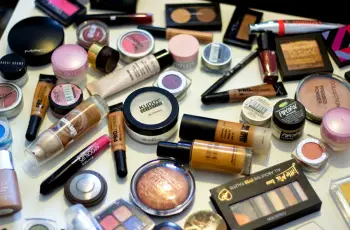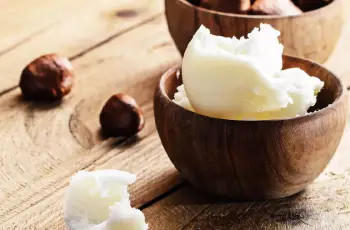
What Happens to Your Skin When You Stop Drinking Alcohol?
If you’re ready to say goodbye to cocktails and embrace a healthier skin routine, you’re in for a treat.
Whether you’re preparing for Sober October or just want to give your skin a much-needed break after a summer of indulgence, stopping alcohol can do wonders for your complexion.
But what exactly happens to your skin when you cut alcohol out of your life? We spoke to experts to get the inside scoop on how alcohol affects your skin, and how abstaining can lead to noticeable improvements.
Alcohol and Its Impact on Your Skin
First, let’s break down how alcohol harms your skin. While enjoying a glass of wine or a cold beer now and then might seem harmless, the long-term effects of alcohol on your skin can be significant. Alcohol is a hepatotoxin, meaning it specifically damages the liver. Since the liver plays a crucial role in detoxification and the overall health of your skin, any damage here tends to show up on your face.
Dr. David Jack, a renowned Harley Street beautician, explains that alcohol deprives the skin of vital vitamins. It blocks the absorption of nutrients and accelerates the breakdown of existing stores. The result? A lackluster, dry complexion that lacks that fresh, dewy glow we all crave.
Dehydration: The Silent Skin Saboteur
One of the most immediate effects of alcohol on your skin is dehydration. Alcohol is a diuretic, which means it increases the production of urine, leading to a loss of fluids in your body.
This dehydration directly impacts your skin. When your body is dehydrated, it’s more difficult for your skin cells to retain moisture, leaving your skin looking dry, tired, and more prone to wrinkles.
Dr. Jack explains that alcohol also suppresses vasopressin, a hormone that helps your kidneys reabsorb water.
When this hormone is suppressed, your body can’t maintain the hydration it needs, leading to skin that’s thirsty for moisture. As a result, your skin becomes less elastic and more prone to fine lines and wrinkles.
Inflammation and Acne: A Recipe for Skin Trouble
Alcohol doesn’t just dehydrate your skin—it can also trigger inflammation.
Dr. Justine Hextall, a leading dermatologist, explains that high-sugar alcoholic drinks (like cocktails) can contribute to inflammation in the body.
This, in turn, can lead to bloating, redness, and puffiness. If you’ve ever woken up with puffy eyes and redness after a night of drinking, this is likely due to the inflammatory effects of alcohol.
But it gets worse—alcohol can also contribute to acne breakouts.
The combination of high sugar content and salt in alcoholic beverages triggers the release of the hormone IGF-1, which stimulates excess oil production in the skin.
This excess oil, combined with clogged pores, can lead to acne flare-ups.
Dr. Hextall explains that alcohol-induced inflammation also impacts your insulin levels, making your skin more prone to blemishes and irritation.
Premature Aging: The Long-Term Consequences
Aside from triggering acne and redness, alcohol accelerates the signs of aging.
Studies show that alcohol consumption can lead to the breakdown of collagen and elastin, the proteins responsible for maintaining your skin’s firmness and elasticity.
When collagen production slows down, your skin becomes more saggy and wrinkled over time.
Additionally, alcohol’s high sugar content causes a process called glycation. This occurs when sugar molecules in the blood attach to proteins, like collagen, forming what are known as Advanced Glycation End Products (AGEs). These AGEs interfere with collagen and elastin production, leading to a loss of skin firmness and a dull complexion.
Over time, this process contributes to premature aging, giving you that tired, lifeless look.
Alcohol and Skin Discoloration
Another common skin issue linked to alcohol is discoloration. When you drink, alcohol acts as a vasodilator, meaning it causes your blood vessels to expand.
If your blood vessels expand too much, they can rupture, leading to red veins and broken capillaries. This is why many people notice red veins around their nose and cheeks after a few drinks. Additionally, when the liver isn’t functioning properly due to alcohol consumption, it can lead to pigmentation issues, particularly dark circles under the eyes.
Sleep Disruption: The Hidden Skin Killer
A good night’s sleep is essential for healthy skin, and alcohol severely disrupts your sleep cycle.
Dr. Kevin Mun, the Scientific Director of Venn Skincare, explains that alcohol interferes with the circadian rhythm, or internal body clock.
When you drink, your sleep cycle becomes fragmented, and you miss out on the REM phase of sleep—the phase during which your skin repairs itself.
This can reduce collagen production and impair the skin’s ability to renew itself.
Furthermore, poor sleep quality affects your skin’s hydration levels.
When you don’t get enough quality sleep, your skin becomes dehydrated, leading to a dull complexion and an imbalance in your skin’s pH levels.
This leaves your skin more vulnerable to dryness, wrinkles, and irritation.
What Happens to Your Skin When You Stop Drinking?
Now for the good news! While alcohol has a negative impact on your skin, quitting it—even just for a month—can lead to remarkable improvements.
According to Lucy Xu, a London-based beautician and founder of a top laser clinic, giving up alcohol can rejuvenate your skin and help restore that youthful glow.
1 Week After Quitting Alcohol:
After just a week of abstaining from alcohol, many people begin to notice positive changes in their skin. First and foremost, your skin will begin to regain moisture.
Since alcohol is a dehydrator, cutting it out allows your skin to become plumper, smoother, and healthier.
As hydration levels improve, you may also notice a reduction in redness and flushing caused by alcohol, resulting in a more even skin tone.
1 Month After Quitting Alcohol:
After a month of sobriety, the improvements in your skin will become even more noticeable. As your skin becomes more hydrated, circulation improves, and your complexion will appear brighter and more radiant.
You may also notice a reduction in puffiness, especially around the eyes, which is a common side effect of alcohol consumption.
3 Months After Quitting Alcohol:
Around the three-month mark, the benefits of cutting alcohol out of your routine become more pronounced. Skin conditions like acne and breakouts will start to subside, and your skin will look clearer overall.
If you’ve been struggling with fine lines and wrinkles, you might also notice improvements in skin elasticity. As hydration levels continue to improve, your skin will look healthier, more youthful, and less tired.
How to Care for Your Skin After a Break From Alcohol
If you plan to return to drinking after your alcohol-free month, it’s important to take steps to protect your skin from the negative effects of alcohol. Here are a few tips to help you minimize the damage:
Hydrate Well: Drink plenty of water between alcoholic drinks. This simple step will help prevent dehydration and keep your skin from drying out. Coconut water is also a great option, as it’s packed with electrolytes.
Prepare Ahead of Time: If you know you’re going to indulge, consider taking supplements that support liver detoxification.
Some people find that taking hangover prevention capsules before drinking helps minimize the effects of alcohol on their skin and overall health.
Limit Late-Night Drinking: Alcohol can disrupt your sleep, so try to avoid drinking right before bed. The better the quality of your sleep, the better your skin will look in the morning.
Final Thoughts
Whether you’re giving up alcohol for a month or simply cutting back, your skin will thank you. The positive changes in hydration, tone, and clarity are clear benefits of sobriety.
While results may vary depending on factors like genetics and skincare habits, the overall impact of abstaining from alcohol can be transformative for your complexion.
So, if you’re considering taking a break from drinking, know that your skin—and overall health—will benefit in the long run. After all, healthy skin is always in style!


